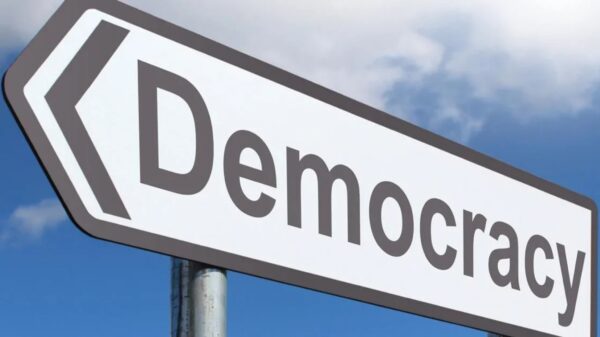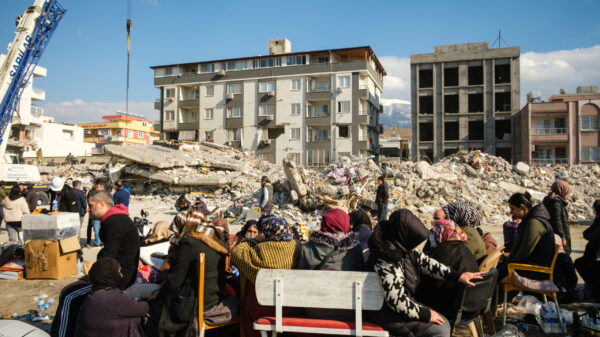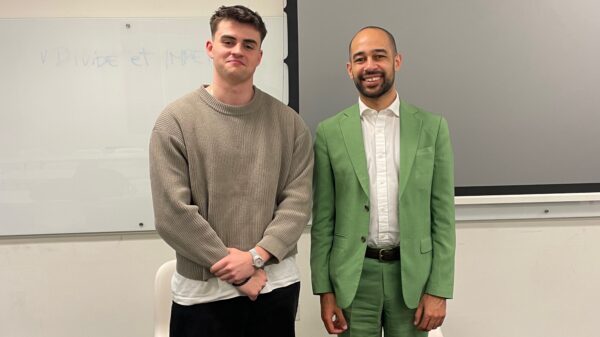Staff Writer Naz Karadede previews the upcoming Turkish elections.
Turkey will be holding its general elections on Sunday May 14 – arguably its most critical elections to date. The elections will both determine the next President of the transcontinental country as well as the composition of its Parliament for the next 5 years. Turkey’s last general elections took place in 2018, giving President Erdogan a decisive victory. However, what makes these elections different is their timing – they are taking place during a tumultuous period of Turkey’s history. The country experienced a destructive earthquake in February, after it had already been struggling with a range of domestic issues, such as the highest inflation in the OECD and a cost of living crisis, democratic backsliding, and increasing political polarisation.
And what makes them so critical is that they are Erdogan’s biggest political challenge to date. For the first time since he came to power 20 years ago, Turkey’s “strongman” could face electoral defeat.
How do the elections work?
There are a total of 64 million registered voters in Turkey, with approximately 3.4 million voters living abroad. Turkey transitioned to a presidential system in 2018, so voters will be voting directly for the president out of three presidential candidates. A candidate needs more than 50% of the vote to win, and if no candidate secures more than half of the votes in these elections, a second round of elections will be held on May 28. It is currently estimated that this second round will take place.
In the parliamentary elections, voters will vote to elect the 600 members of Turkey’s parliament, the Grand National Assembly, through a system of proportional representation.
Who are the candidates and what are their political alliances?
- Recep Tayyip Erdogan, The People’s Alliance:
President Erdogan, Turkey’s longest-ruling leader to date, is running as the candidate for the People’s Alliance. The People’s Alliance is a coalition of right-wing parties including Erdogan’s Justice AK Party, the nationalist MHP, the ultraconservative New Welfare Party, and the Great Unity Party.
Erdogan and The People’s Alliance have promised to decrease inflation and solve the cost of living crisis, build more than 650,000 new houses for earthquake relief, initiate the return of Syrian refugees back to their home country by cooperating with the Syrian governmen and build an ‘axis’ centred around Turkey in its foreign relations.
Election polls currently estimate support for Erdogan to be at around 43.7%.
2. Kemal Kilicdaroglu, The Nation Alliance:
The main opposition candidate is Kemal Kilicdaroglu, who is the leader of Turkey’s main opposition party, the Republican People’s Party (CHP), which was established by the founder of the Turkish Republic, Ataturk. He is running for the Nation Alliance, a coalition of six parties, including the CHP, the centre-right IYI Party, the Islamist Felicity (Saadet) Party, the Democrat Party, the Dewa (Remedy) Party, and the Future Party.
Kilicdaroglu and The Nation Alliance have promised to solve Turkey’s economic problems, normalise relations with the EU and the U.S., build new houses in the regions impacted by the earthquake, and foster the voluntary return of Syrian refugees back to their home country.
The alliance has also promised to restore the parliamentary system in Turkey. They have emphasised plans for a greater separation of powers, with an increased role for parliament and a restoration of the independency of the judiciary. Kilicdaroglu has also vowed to revoke a law that makes insulting the president a criminal offence and to release political prisoners in Turkey such as Osman Kavala.
Current election polls estimate support for Kilicdaroglu to be at 49.3%, which increased critically after the fourth presidential candidate, Muharrem Ince, announced his withdrawal from the race on 11 May 2023.
3. Sinan Ogan, Ancestral Alliance:
Sinan Ogan, the third presidential candidate, is running as the candidate for the Ata Alliance. He was formerly a lawmaker with the nationalist MHP, an ally of Erdogan’s AK Party. He has promised to return Syrian refugees back to their home countries and increase collaboration with Turkic states. However, critics have accused him of ultra-nationalist and xenophobic policies due to his more extreme approach to resettling refugees.
Current polls give him around 4.8% of the vote.
The fourth presidential candidate, Muharrem Ince, announced that he would be withdrawing from candidacy on Thursday, after receiving false allegations and harsh criticism for splitting the opposition vote.
What are the main issues influencing the election?
The economy: The cutting of interest rates in 2021 spiked a currency crisis, with the Turkish Lira devaluing substantially and causing inflation to reach an all-time high of 85.5% last year. This has resulted in a cost of living crisis that has been felt nationwide. Erdogan’s government has been criticised for its economic policy of low interest rates which, in his critics’ opinion, has prevented inflation from decreasing.
The earthquake: The earthquake on February 6 left more than 50,000 people dead, displaced thousands of people, and caused an estimated $32.4 billion in damages. Recovery and reconstruction is estimated to cost almost double that amount. Erdogan’s government has been criticised for setting the stage for the scale of destruction by insufficient building code enforcement. Given the scale of destruction and damage caused by the earthquake, candidates have prioritised earthquake relief and reconstruction as a policy in their election campaigns.
Human rights and democracy: Critics of Erdogan have accused him for Turkey’s democratic backsliding, particularly following the 2016 coup, which saw thousands arrested and the 2017 referendum which drastically increased Erdogan’s powers as President. They argue that Turkey has become an increasingly authoritarian state under Erdogan. This is due to the crackdown on political dissidents, the dramatic reduction in freedom of speech and the press and the reduction in the powers and autonomy of the Turkish Parliament and Judiciary that has taken place during Erdogan’s presidency. Indeed, 90% of all media outlets in Turkey are currently controlled by the government and businessmen with ties to the government and Turkey is one of the countries with the highest number of journalists in jail.
Refugee crisis: Given Turkey’s economic problems and the economic repercussions of the earthquake, there is a consensus that Turkey can no longer support its refugee population, which has reached 3.7 million. Both Erdogan and Kilicdaroglu have thus announced plans to encourage the voluntary return of refugees back to their home countries.
Why these elections are so important
Looking at the current issues that Turkey is facing, from economic decline, the repercussions of the earthquake, increasing polarisation and democratic backsliding, it is safe to say that these elections are critical for Turkey’s future. More, importantly, for the first time in two decades, the opposition stands a chance for electoral victory, with election polls showing the main opposition candidate, Kilicdaroglu, to be ahead of Erdogan. Looking at the range of policies promised by the opposition and their chance of success, these elections could ultimately foster a transition to a more representative and democratic system in Turkey.
The timing of the elections is highly symbolic too – it is exactly 100 years after the first elections were held in Turkey in 1923, by the founder of the Turkish Republic, Mustafa Kemal Ataturk. Hopefully they mark a positive milestone for Turkey’s democracy.















